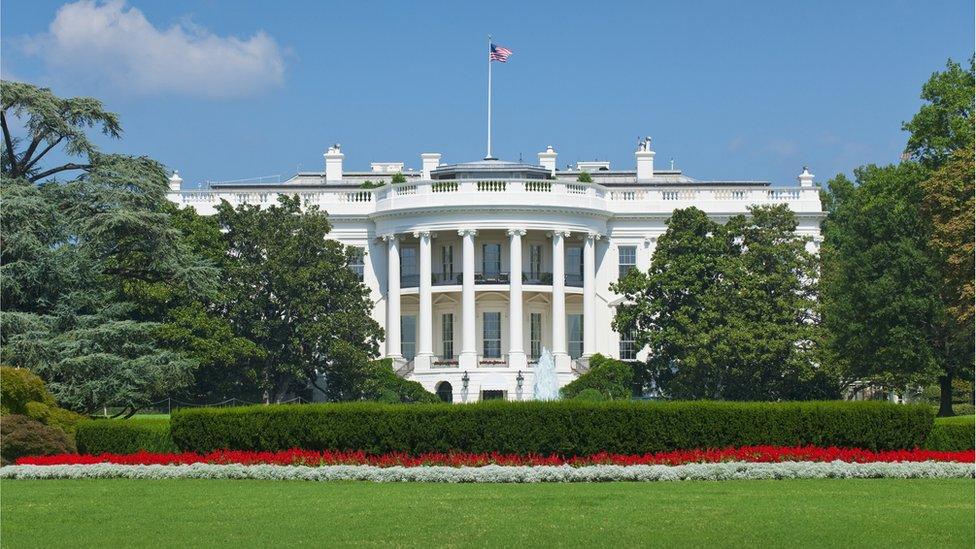Joe Kennedy III confirmed as US special envoy to Northern Ireland
- Published
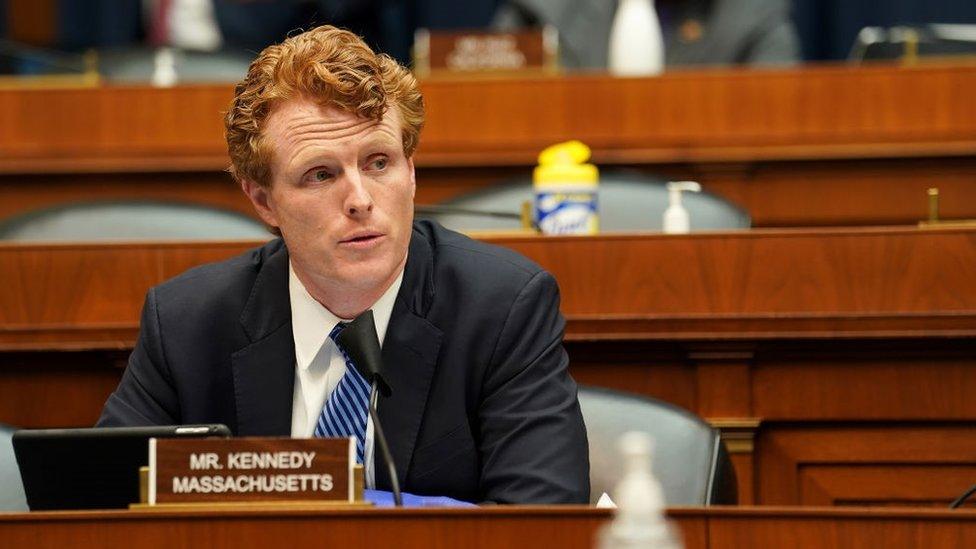
Joe Kennedy III served as the US representative for Massachusetts's 4th congressional district from 2013 to 2021
Joe Kennedy III has been confirmed as the new United States special envoy to Northern Ireland.
Mr Kennedy will focus on economic development and closer ties and not political issues such as Brexit or the Northern Ireland Protocol.
The US State Department said he would concentrate on "advancing economic development and investment opportunities in Northern Ireland".
Mr Kennedy tweeted, external that the appointment was "an incredible honour".
"Look forward to working with the Biden administration to reaffirm US commitment to Northern Ireland and to promote economic prosperity and opportunity for all its people," he added.
Northern Ireland Secretary of State Chris Heaton-Harris said he looked forward to welcoming Mr Kennedy to Belfast in the near future.
Famous family
Mr Kennedy, 42, is part of one of the most famous families in American politics, being the grandson of assassinated presidential candidate Robert Kennedy and great nephew of US President John F Kennedy.
The special envoy role has been vacant since Mick Mulvaney quit in January 2021 having served less than a year during the Trump administration.
The news comes before new rules are introduced in January which require special envoy appointments to be approved by the US Senate.
Welcoming the appointment, Sinn Féin deputy leader Michelle O'Neill said: "This appointment puts renewed emphasis on the economic development of the north, and the benefits we can yield through dual access to both the EU single market and British market which uniquely positions our economy.
"Joe Kennedy has a strong record in promoting the interests of the north and I look forward to working with him in the time ahead."
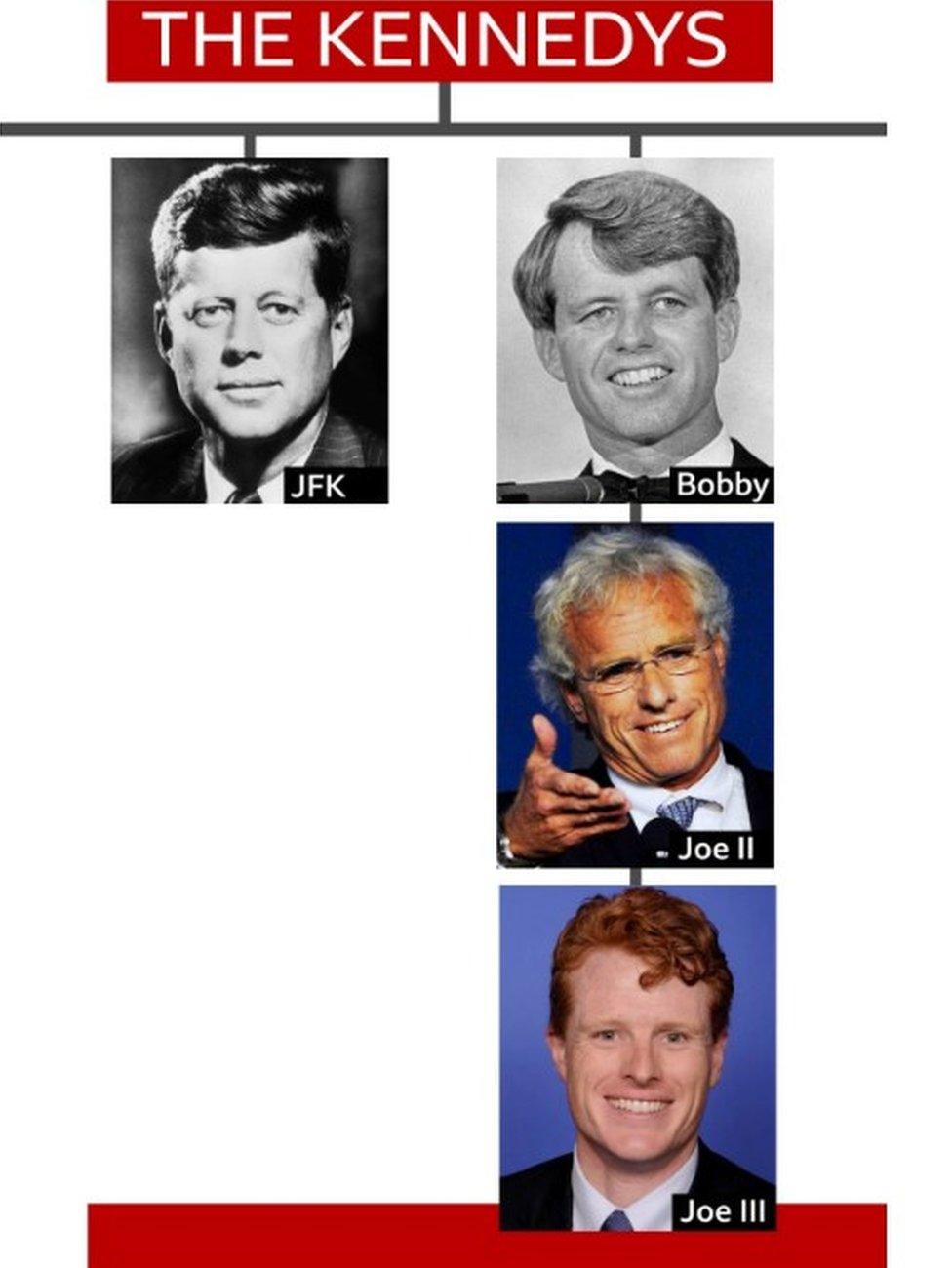
Democratic Unionist Party (DUP) leader Sir Jeffrey Donaldson said the new US special envoy to Northern Ireland needed to take the views and concerns of unionists on board.
"While his role is economic matters, one can't avoid the [Northern Ireland] protocol and the harm it is doing to our economy," he said.
"It will be important for the United States to gain a better understanding of the real concerns that unionists have about the protocol."

Who is Joe Kennedy?
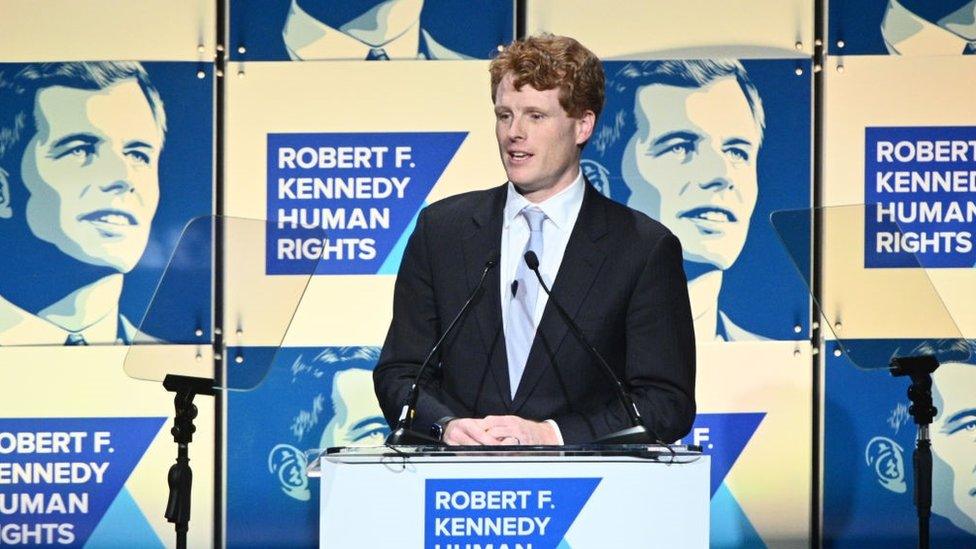
Mr Kennedy is the grandson of assassinated presidential candidate Robert Kennedy
Before attending Harvard Law School, Mr Kennedy served in the Peace Corps in the Dominican Republic for two years.
He then became a district attorney before setting his eyes on the US House of Representatives.
Mr Kennedy served as the US representative for Massachusetts's 4th congressional district from 2013 to 2021.

Alliance Party leader Naomi Long said: "Northern Ireland has always benefited significantly from the engagement of successive US administrations, from involvement in the peace process to development of the economy and support of endeavours such as integrated education.
"I hope Mr Kennedy is able to continue that good work in this role and give Northern Ireland a high profile on the international agenda."
Ulster Unionist Party leader Doug Beattie said: "Unionism has suffered from not engaging fully with the USA and this has been something my party has been keen to rebalance in recent years.
"I will be making the positive case for Northern Ireland to Mr Kennedy when I speak to him, and I wish him well in his new role."
SDLP leader and Foyle MP Colum Eastwood described it as "a serious appointment from a US president who is serious about his enduring commitment to people here".
Mr Eastwood tweeted , externalthat he was looking forward to working with Mr Kennedy to "deliver more opportunities for communities which have yet to experience the sizeable dividend of peace and prosperity".

Some US special envoys to Northern Ireland last longer in the memory than others.
After all, it was one of them, George Mitchell, who helped lay the path for the Good Friday Agreement.
Despite the agreement's 25th anniversary looming in April, and with power-sharing government still suspended, Joe Kennedy's remit will be nothing like some of his predecessors.
His priority, we're told, will be long-term economic plans for Northern Ireland. In other words, spreading the word to US investors about Northern Ireland businesses, say those close to the matter.
The US has taken a great interest in the Northern Ireland Protocol dispute in recent months but the Biden administration is not using this particular appointment to pile on political pressure.
That said when Mr Kennedy makes his first trip to Northern Ireland, expected some time early in the new year, no doubt he will have plenty to say about the politics of a place he represents on a transatlantic platform.

What issues will he face in Northern Ireland?
Mr Kennedy's appointment comes during a fractious political era in Northern Ireland.
There has been no power-sharing government since February, when the DUP walked out of the first minister post in protest over the Northern Ireland Protocol.
Unionists argue the post-Brexit trading arrangement undermines Northern Ireland's position in the UK as it keeps the nation aligned with some EU trade rules to ensure goods can move freely across the Irish land border.
Since May's Northern Ireland Assembly election, when Sinn Féin won the largest number of seats for the first time, there have been five attempts to restore the executive.
But these have all failed as the DUP has refused to vote for a new speaker, a position that must receive support from unionists and nationalists before any other business can be heard.
The DUP argues it has a mandate from voters not to return to the executive until the protocol is "significantly changed".
Meanwhile, the UK and the EU continue to hold talks over the protocol and, while a resolution does not appear imminent, both sides agree a window of opportunity exists for a deal.
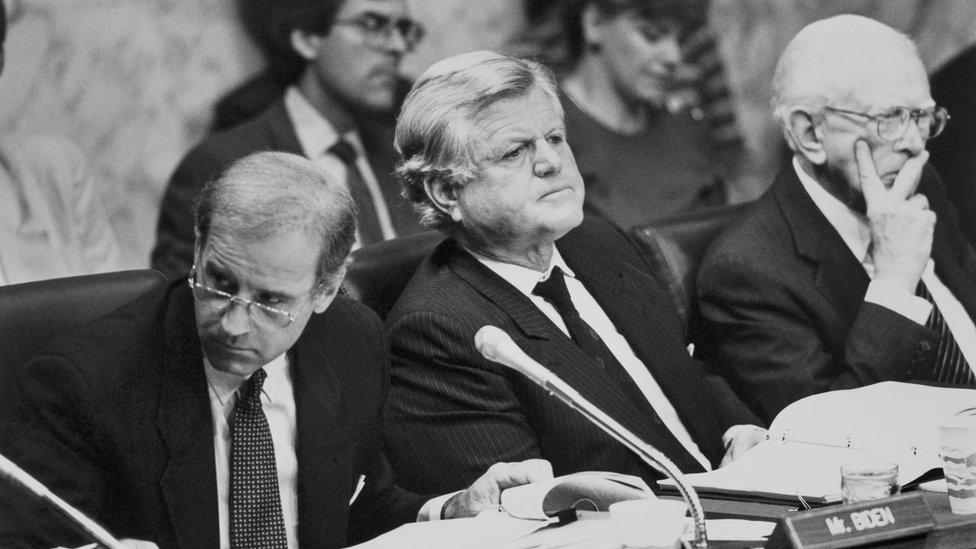
Joe Biden (left) served alongside Joe Kennedy's great-uncle, Ted (centre), in the US Senate during the 1990s
While it is understood that Mr Kennedy's role will not focus on political issues, leaders in the US have previously made their stance on the protocol clear.
The former House of Representatives Speaker Nancy Pelosi last year warned there would be "absolutely no chance" of a US-UK trade agreement if Brexit undermines the Good Friday Agreement.
In September, President Joe Biden repeated that call, saying that dismantling the protocol would "not create a conducive environment" for trade talks.
Related topics
- Published16 December 2022
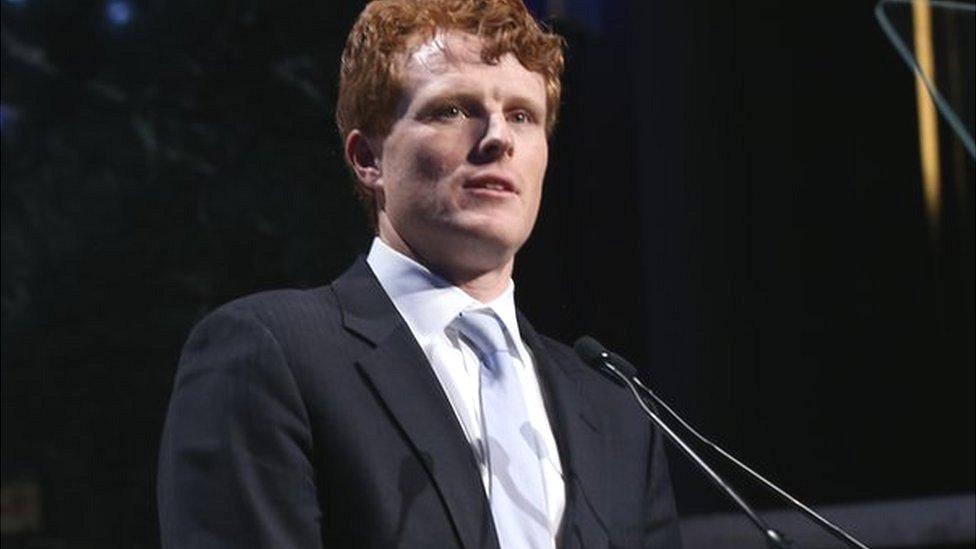
- Published11 December 2022
